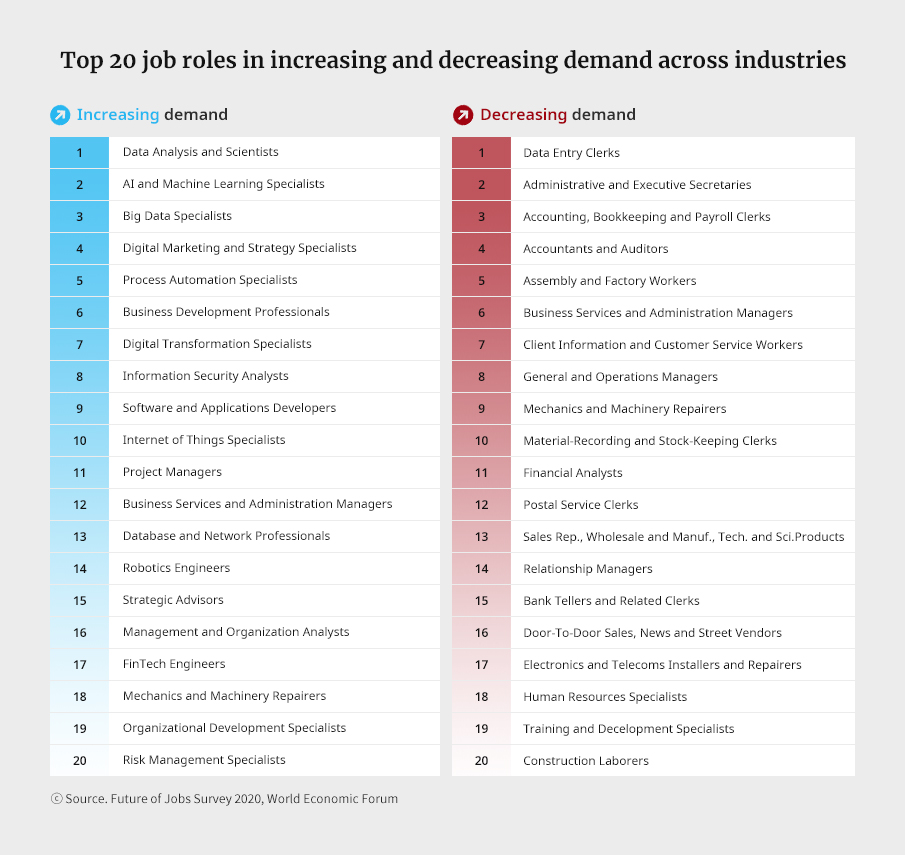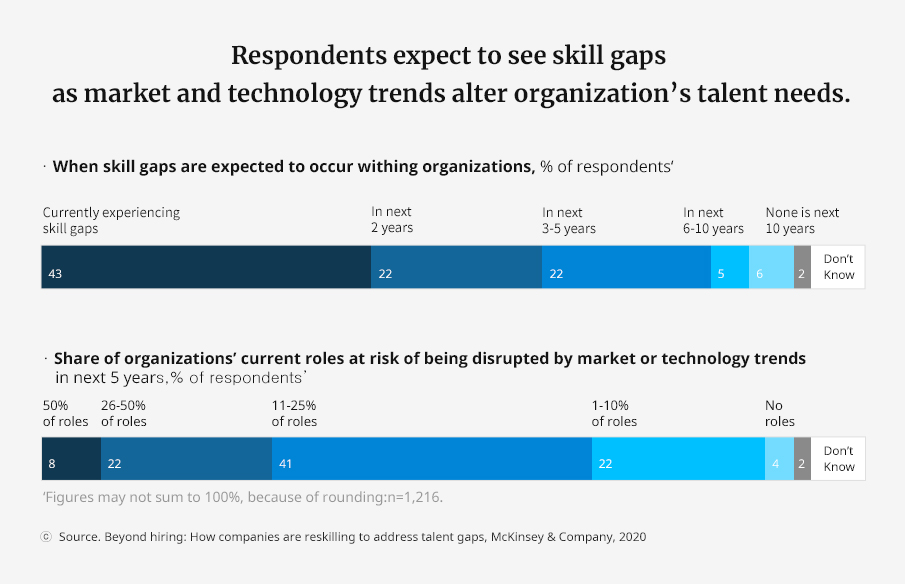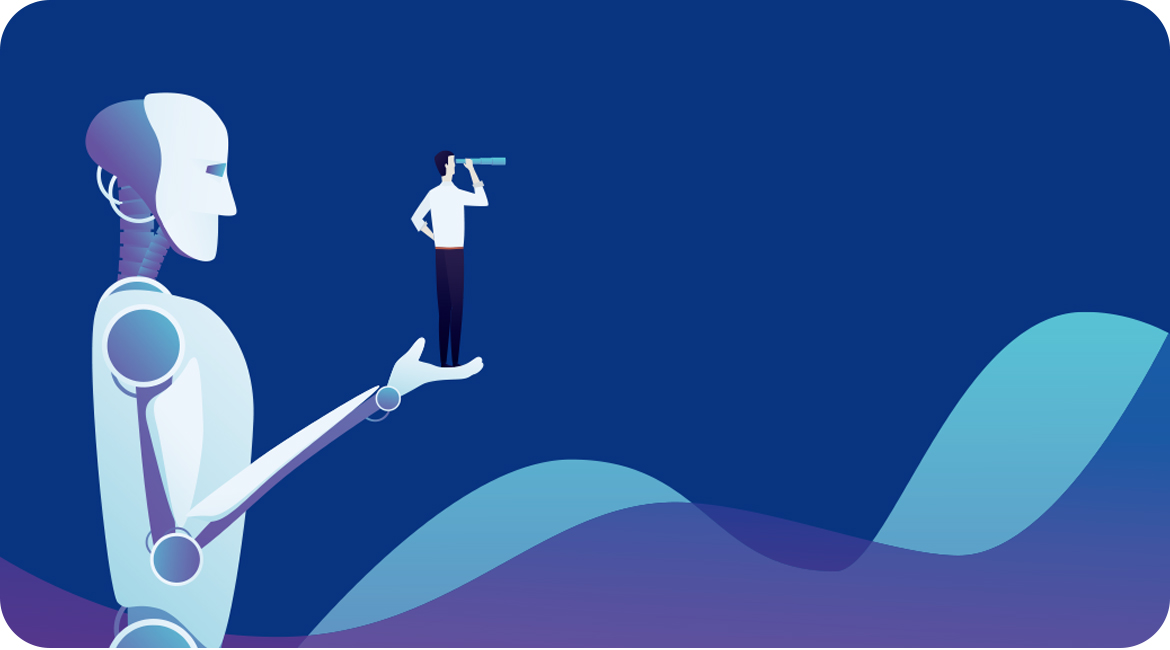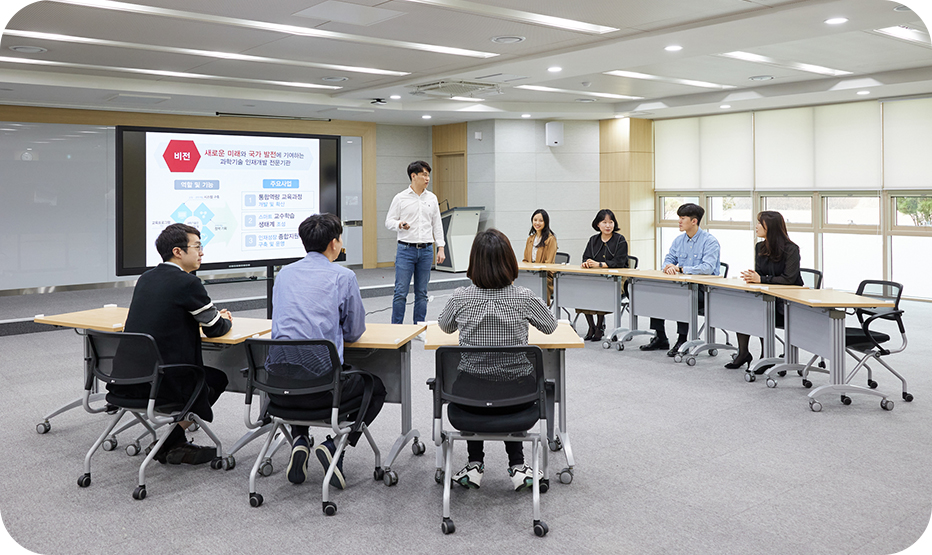VOL.02 · July 2022

VOL.02 · July 2022

The importance of upskilling and reskilling within organizations is being highlighted more than ever. With acceleration of digital transformation, new technologies are mushrooming. During the transition of Covid 19 pandemic into endemic, the labor market structure and way of working have radically changed, resulting in changes in expected skills and capabilities required from talents.
World Economic Forum (WEF)’s 2020 report titled ‘The Future of Jobs’ stipulates that the 4th industrial revolution has caused disruptive changes in labor market. As a result, 42% of core capabilities required in the labor market will be replaced by new technologies by 2022 and one third of the jobs will go through changes by 2030.
In particular, cloud computing, big data, e-commerce and crypto/security technologies are cited as technologies which will be adopted by 2025. Also, nonhumanoid robots such as drone and AI are on the rise.

In accordance with the changes to technology demand, industries are expected to pursue talents who are equipped with expertise in different fields such as data analysis, AI, machine learning, big data, e-commerce and process automation.
As such, with the digital transformation at workplace, industries are feeling necessity of talents equipped with digital capacity such as big data and AI. However, existing resources are struggling to keep up with this pace of change, resulting in skill gap. McKinsey & Company’s 2020 research analysis report revealed that 44% of the respondents expected that there will be skill gap within five years while 43% of them stated that they are already experiencing skill gap. In summary, 87% of the respondents answered that the they are either experiencing skill gap or expected to experience one.

Boston Consulting Group published report titled ‘Future of Jobs in the Era of AI’ in 2021. According to the report, the following roles will be required to deal with changes to industries and labor structure.
| Government | Companies | Individuals |
| · Plan for the future workforce. · Rethink education, upskilling, and reskilling. · Build career and employment platforms · Update social safety nets. · Drive innovation and support small and midsize enterprises (SMEs). |
· Perform strategic workforce planning. · Upskill and reskill existing workforces. · Create a lifelong learning culture. · Rethink talent recruitment and retention strategies. |
· Make lifelong learning the new normal. · Remain focused on upskilling and reskilling. · Become more flexible when developing a career path. |
ⓒ Source. The Future of Jobs in the Era of AI, Boston Consulting Group, 2021
Among requirements and roles above, the commonly highlighted roles among government, industries and private companies are none other than upskilling and reskilling. In order to prepare ourselves for the resource shortage induced by working population reduction, we will have to spare no efforts in training and reinforcing capabilities of the existing workforce.
Upskilling is about enhancing workforce’s capability so that the workers can be more effective and efficient or take on more complex work while reskilling refers to the process of learning new skills necessary for performing new jobs
Upskilling and reskilling are essential for companies to remain competitive and maintain their position in the marketplace. Global companies are also investing heavily in upskilling and reskilling of their workforce so that they can nurture talents which will help them navigate through future challenges. IBM adopted “Open P-TECH”, a free online education platform at the beginning of pandemic in 2020 to provide education on AI, cloud and cyber security. In preparation for digital transformation era, American carrier AT&T provides courses regarding coding, data science and cloud-based computing to develop digital capacity of their workforce.

KIRD is also offering various and practical programs for upskilling and reskilling of scientists and engineers. A case in point is “Digital Transformation Training Course”, a program for scientists and engineers, who hope to reinforce their digital capacity. This program ranges from basic AI course to advanced course. Also, the “AI Training Courses for Government-funded Research Institutes” for the employees of research institutes are provided to facilitate AI convergence research. Furthermore, the KIRD launched “LIFE-100 Design Academy” to help scientists and engineers have a head start in their 2nd phase of lives after retirement.
KIRD, as “a support hub for growth of S&T researchers in their life cycle”, is determined to devote its efforts to making sure that scientists and engineers secure required capability in the future.

- 「The Future of Jobs Report 2020」, World Economic Forum, 2020.
- 「The Future of Jobs in the Era of AI」, Boston Consulting Group, 2021.
- 「Beyond hiring: How companies are reskilling to address talent gaps」, McKinsey&Company, 2020.